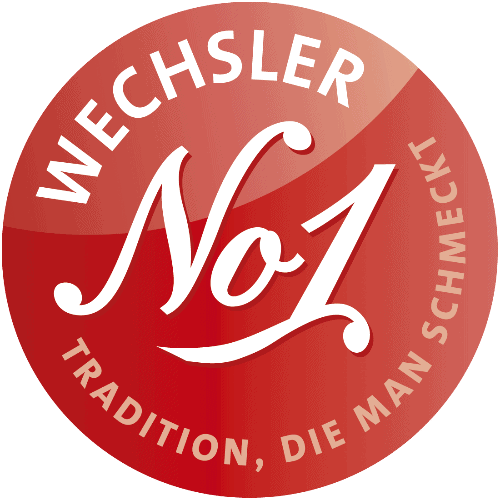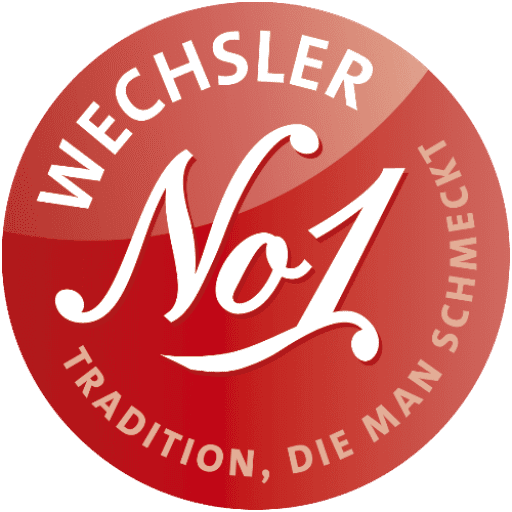FAQ
frequently asked Questions
You've always wanted to know, Where is the difference between the use by date and the best before date?? Or what actually sets us at Wechsler apart?
Here you find the answers!
What distinguishes us from our competitors?
Our slogan “Tradition, that you can taste.” we remain faithful with all our hearts. Contrary to what is now usual, industrial fumigation, we rely on craftsmanship in our production as before 100 years.
With us, each fish is traditionally and gently salted by hand before the smoking process and then smoked over an open beech wood fire. The fish are then carefully filleted by hand. Tradition and excellent quality are our top priority.
Why BioMare?
In the past we have been guided by our customers, who prefer to shop in organic specialist shops, that they missed our products on the refrigerated shelves.
Since we've been selling our Irish Organic Salmon for 1996 rely on Naturland-certified raw materials, we have each other in the year 2008 decided to do so, to develop an exclusive brand for the organic trade.
Thus BioMare was born. The BioMare range now includes organic trout and shrimp in addition to Irish organic salmon.
Where can I find Wechsler and BioMare products?
You can find our Wechsler products in selected retail outlets such as Rewe, Real, Edeka, Karstadt and Kaufhof. We are also in wholesale markets like Metro, Selgros and Handelshof represented.
You can find our BioMare products in specialist organic shops such as Denns Biomarkt, Temma and Alnatura
I could not find the products in stores - what can I do?
If you ever use our products in your (Bio)-supermarket should miss, contact the staff there directly, they will surely be able to order the products for you.
Alternatively, you can also visit our online shop at www.wechsler-shop.eu bestellen. In this way, you can conveniently receive your goods in a chilled package via DPD Express Shipping.
What is the difference between EU Bio and Naturland?
Our organic specialties all come from ecological sources, Aquaculture certified by Naturland. That means, rearing and processing meet the highest quality standards.
Already 1996 we started with our Irish Organic Salmon, to rely on Naturland-certified raw materials. That was at a time when there were neither Germans, there were still EU-wide directives on organic aquaculture. At that time, Naturland was a pioneer in organic aquaculture, with whom we have jointly developed this area and made it successful.
In the interest of animals and nature, stocking densities are more strictly limited. For trout 20 kg per cubic meter of water 25 kg, that allow the EU Organic Regulation. In the case of shrimp, for example, only 160 grams are held, instead of 240 grams per square meter.
The use of antibiotics and conventional veterinary medicine is banned on shrimp and severely restricted on fish. EU-Öko allows the use of antibiotics and Co. for shrimp and regulates it much less strictly for fish. Naturland requires water to be analyzed on a regular basis, Sediment, feed and end product. The EU Organic Regulation does not. In addition, shrimp farmers are committed, to reforest former mangrove forests. This obligation is also checked annually.
A direct comparison of Naturland- and EU organic guidelines can be found here:
What is the MAP packaging and what are the advantages?
MAP means Modified Atmosphere. This type of packaging allows us to achieve a significantly longer shelf life, so you can store our sealed products for up to three weeks. Another advantage is the simplified removal and storage of the products.
By the way: In the year 1999 we were the first company, which brought MAP-packaged smoked fish products to the German market.
What is the difference between cold smoking process and hot smoking process?
The cold smoking process is probably the most well-known method, to make delicious smoked fish. The classic smoked salmon such as ours Biolachs or Wildlachs are prepared in this way. The fish is not directly heated, but exposed to warm smoke of about 15-25° Celsius over a long period of time.
This has always been a method, to make fish or meat last longer and give it a special smoky note.
In contrast, with the hot smoking process, the fish is not just smoked, but cooked at the same time. The smoking temperature is between 55-80° Celsius. Classic examples of this are smoked ones trout, Aal or catfish. These hot-smoked products have an even longer shelf life due to the cooking.
What are we doing to protect natural resources?
In addition to our Naturland certified organic products, Resource-saving production is also important to us for our conventional products
Therefore, our products are predominantly ASC- or MSC certified. That means, that measures for species conservation and for the protection of natural habitats are constantly being initiated.
We also obtain a third of our electricity consumption from our own solar system on the roof of our factory.
However, the European eel is of particular concern to us. That's why we have a year 2009 together with fishermen, Traders and other eel processors the "European Eel Promotion Initiative" (IFEA) founded, who strives for it, rebuild stocks of the endangered fish.
Thus, from every kilogram of eel sold 50 Cent an die Aal-Initiative, which is thus jointly with the Eel Stewardship Fund (ESF) Measures to protect the eel initiated and financed.
So you can enjoy our eel specialties with a clear conscience.
What is the difference between best before..." and "use by..."?
Most foods have a so-called best-before date (MHD). That means, that the manufacturer guarantees the product properties up to the relevant date. In most cases, however, these products can still be consumed after the best-before date.
With fresh meat- and fish products, the regulation is much stricter, which is why they always bear the label "use by...".. These products should be strictly adhered to. products such as minced meat, Delicatessen salads or smoked fish should never be consumed after the use-by date, to prevent health risks.

